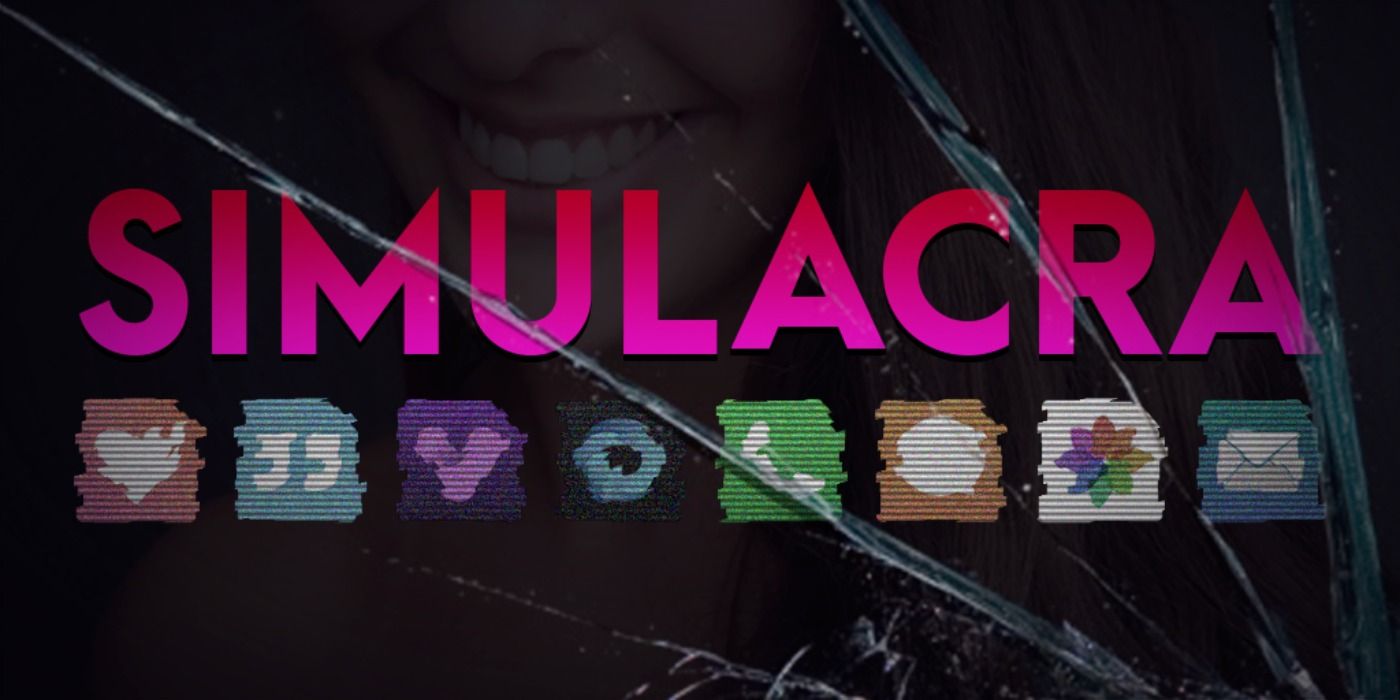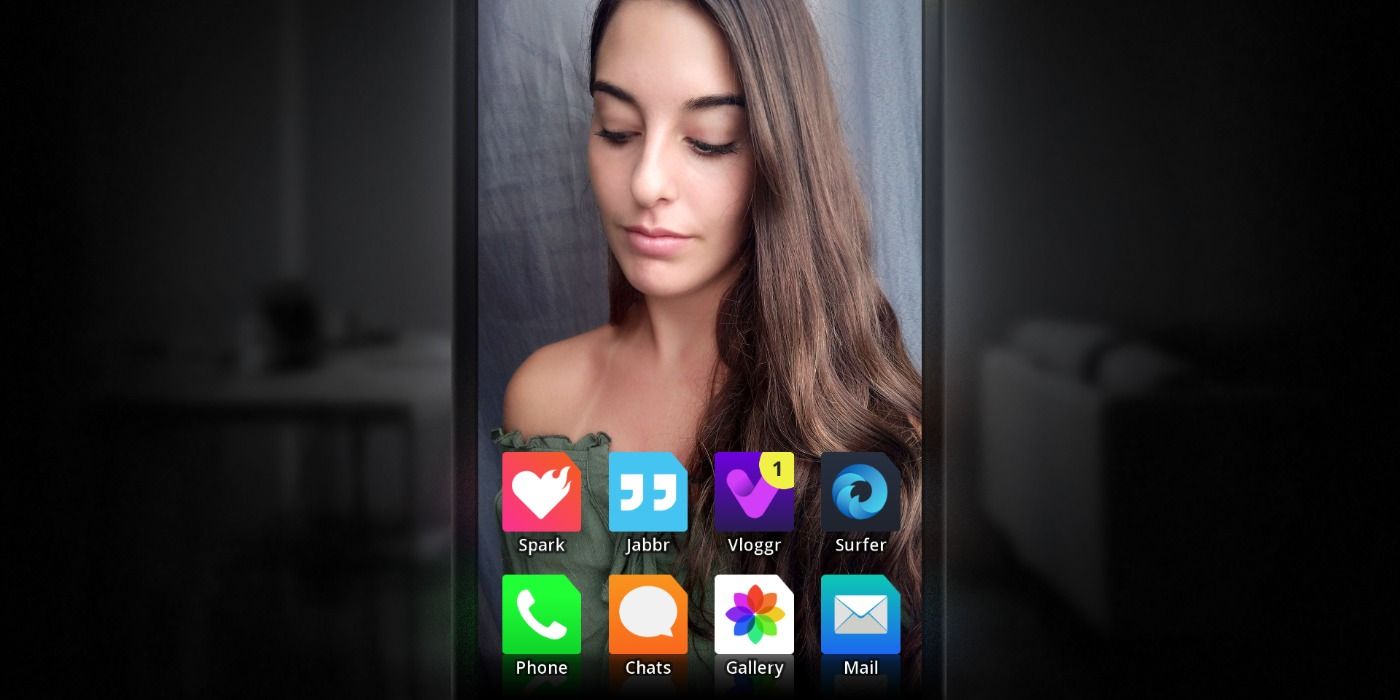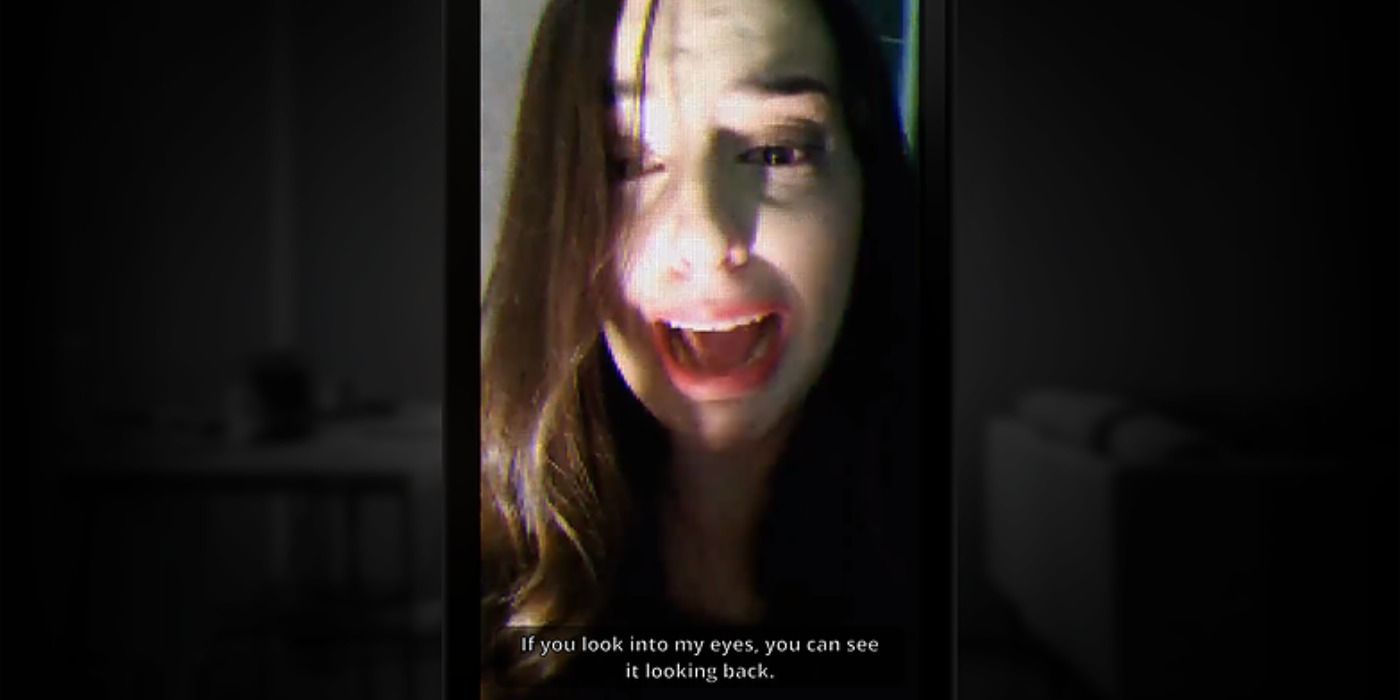Simulacra is a horror game about investigating a missing girl's cellphone that has moments of brilliance but doesn't quite live up to its concept.
Losing a cellphone is a common fear that many people have due to how much of their life they entrust to the device. Simulacra plays on these fears by telling a horror story through the medium of reading another person's personal thoughts, as the player has to piece together a mystery in a game that has a great story to tell but is often hamstrung by the ways in which it tries to tell it.
Simulacra is a puzzle game that involves searching for a missing girl by going through her personal messages and photos. The game essentially takes the found footage concept and applies it to smartphones. The player wakes up and finds a mysterious cellphone that has been shoved through their front door. The phone belongs to a girl named Anna who hasn't been seen for several days. It's up to the player to uncover the mystery behind Anna's disappearance by reading numerous emails and direct messages. It doesn't take long for the player to realize that something is wrong with the phone, as it almost seems to have a life of its own.
The concept of Simulacra is genius and the story is the highlight of the entire experience. There is an undeniable voyeuristic pleasure to reading through a stranger's most personal thoughts and the game encourages the player to memorize every detail of Anna's hopes, dreams, and disappointments in order to learn more about her. Anna has had a rough few months and the story of her disappearance gradually unfolds across numerous different conversations with the people in her life. The player is given the chance to interact with Anna's friends and lovers without knowing who exactly can be trusted. These elements of Simulacra are similar to a visual novel and the choices made in conversation are the key to discovering the game's five endings. It's possible to use the information on Anna's phone to deceive others and it's up to the player to decide whether such actions are acceptable when trying to save a life. Anna herself is played by Wendy van Horen and she appears in numerous photos and videos throughout the game. The fact that Anna is played by a real actress adds a great deal of weight to the character and makes her feel a lot more real than if her presence had been limited to text.
The main issue with Simulacra is the implementation of its puzzles. There are some puzzles that involve searching through Anna's phone in order to find a specific piece of information that is needed to progress, such as an email address or a phone number, and these are generally a lot of fun. The problem comes in the form of the rest of the puzzles in the game, which either involve building a correct sentence out of a string of words or lining up picture pieces. These puzzles are tedious at best and frustrating at worst, to the point where they bog down the entire experience. It feels as if Simulacra would have been greatly improved by either dropping the puzzles entirely and becoming an excellent visual novel, or coming up with a greater variety of brain teasers in order to justify their existence.
The other major issue is the source of the horror in the game, as it often relies on jump scares in order to elicit a reaction from the player. Simulacra can be a very creepy game in its own way and the gradual reveal of the story through text messages is masterfully done, but the glitched-out faces accompanied by loud static noises are the cheapest scares in the book and they only detract from the experience.
The transition to consoles also hurts Simulacra in several ways. Simulacra is the kind of game that is meant to be played on a mobile phone and playing it on a TV takes something away from the experience, though the Nintendo Switch's handheld mode alleviates this somewhat, as it's closer to how the game should be played. Playing the game with a controller instead of a touchscreen can also be a tedious experience, due to several puzzles requiring the player to type out names and email addresses.
Simulacra has an amazing concept on paper, but the game never quite lives up to its potential. The slow reveal of the story and experience of reading through someone else's life is compelling on its own, but the boring puzzles and cheap jump scares detract from the experience as a whole. There is a great story waiting to be told in Simulacra, but there are a lot of hurdles that get in the way of enjoying it.
Simulacra releases for Nintendo Switch, PlayStation 4, and Xbox One on December 3, 2019. A digital copy of the Nintendo Switch version of the game was provided to Screen Rant for the purposes of this review. Simulacra 2 is also in the works and will be released for Android, iOS, and PC on December 12, 2019.



